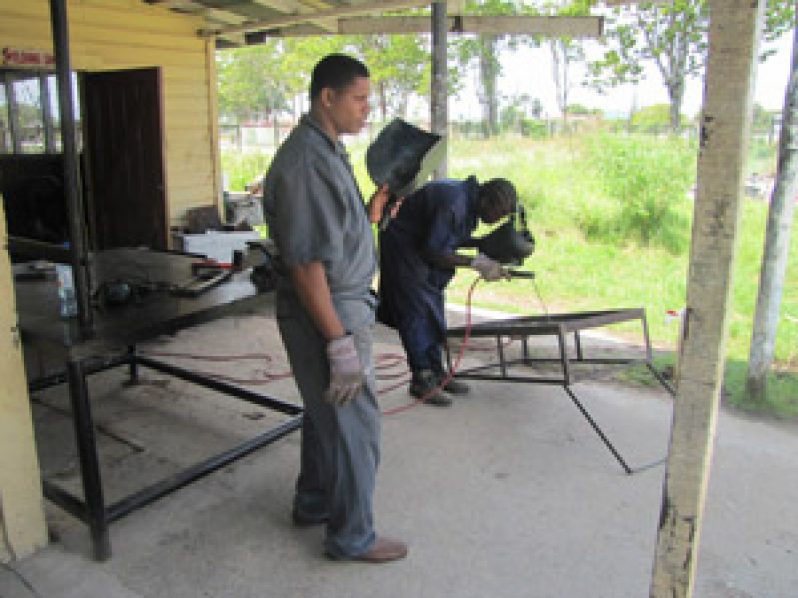INTERNATIONAL trade is an imperative for economic development, especially in a small, developing country such as
Guyana, according to Minister of Finance, Dr. Ashni Singh. And he has assured stakeholders of the Government’s commitment to fixing the glitches/lacunas in terms of policy to improve the system that currently exists.
And he has assured stakeholders of the Government’s commitment to fixing the glitches/lacunas in terms of policy to improve the system that currently exists.
The Finance Minister was at the time delivering the feature address at the opening of a five-day workshop on Trade Facilitation yesterday at Cara Lodge, Quamina Street, Georgetown. This forum is being facilitated by the World Trade Organisation (WTO) and was organised by the Foreign Affairs Ministry and the Guyana Revenue Authority (GRA).
The aim of the workshop is to determine Guyana’s needs and priorities in the WTO’s trade facilitation negotiations, as well as the state of play in the country’s implementation of best-practice measures at the level of the Customs and Trade Administration.
Recognising the importance of international trade, Minister Singh said that there is need for a trading system that is as efficient as possible from the domestic standpoint.
Over the years, there have been several initiatives implemented within the GRA and other relevant agencies aimed at ensuring a more efficient institutional architecture.
These include the mere establishment of the GRA, which is an integrated tax authority, and computerisation of its operations and other interventions aimed at processing import and export transactions more efficiently.
“I have no doubt that work remains to be done for us to achieve a trade-facilitation mechanism that lends itself to the greatest possible efficiency…the task of achieving more efficient trade facilitation does not rest only with Government,” the Finance Minister reminded.
He explained that while the processing of trade transactions lies typically with the public sector (especially the GRA), a significant part of this involves responsibilities to be discharged and tasks to be performed by players in the private sector, who have an obligation to comply with the laws of the jurisdiction, and in whose interest it is to ensure that such compliance is achieved.
Minister Singh said that every trade transaction that is violative of the law has two parties to it, a customs officer that facilitates an unlawful transaction and a private sector individual who induces the non-compliance. He also spoke of an obligation by the private sector to embrace technological changes (electronic, online filing etc).
“The achievement of efficient trade facilitation must not only be because the WTO requires it, it must be because it is in our national interest to do…we need an efficient trade-facilitation system, it is in the interest of the consumers of Guyana and the economic health of our country,” Minister Singh maintained.
Chairman of the Trade Investment Sub Committee of the Private Sector Commission, Ramesh Dookhoo, in his remarks said that the facilitation of trade must be done without compromising revenue collection and called for the GRA to be respected by all players in this sector.
He also urged the GRA to be diligent in ensuring that stern legal action is taken against those found flouting the laws in terms of Government revenues. He noted that inefficient trade facilitation costs the private sector a lot of money.
“We need to arrive at a strong country conclusion and a will to take action where we are non-compliant…let us resolve, at the end of our discussions, to make Guyana the easiest trade-facilitation destination, without compromising our revenues,” Dookhoo said.
Meanwhile, Chairman of the Public/Private Trade Dialogue, Chris Fernandes, explained that the Guyana scenario is unique in that trade is serviced by five independently owned and operated terminals in Port Georgetown. This, he said, makes the task of the customs department far more cumbersome.
This led to the establishment of the public/private dialogue body by then President Bharrat Jagdeo to handle trade facilitation. This body comprises the private sector,the GRA, Customs House Association and the Shipping Association of Guyana.
Fernandes stated that at the level of this body, it was recognised that most of the issues concerning trade are hinged on the GRA, noting that this needs assessment is timely.
The workshop will conclude on Friday, at which time the participants, largely officers of GRA’s Customs and Trade Administration, will be presented with certificates.



.jpg)









